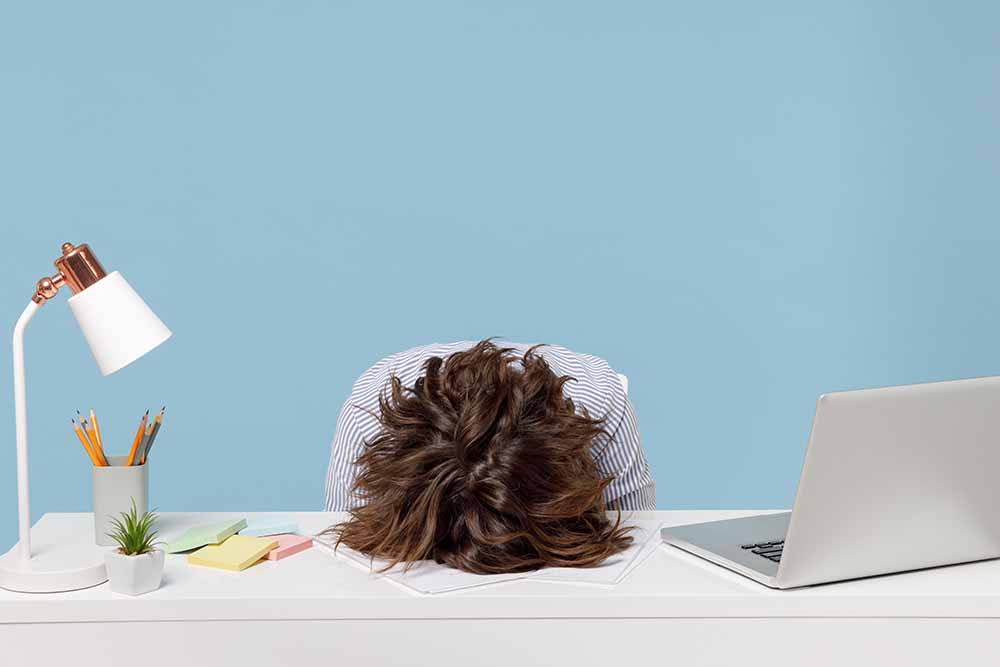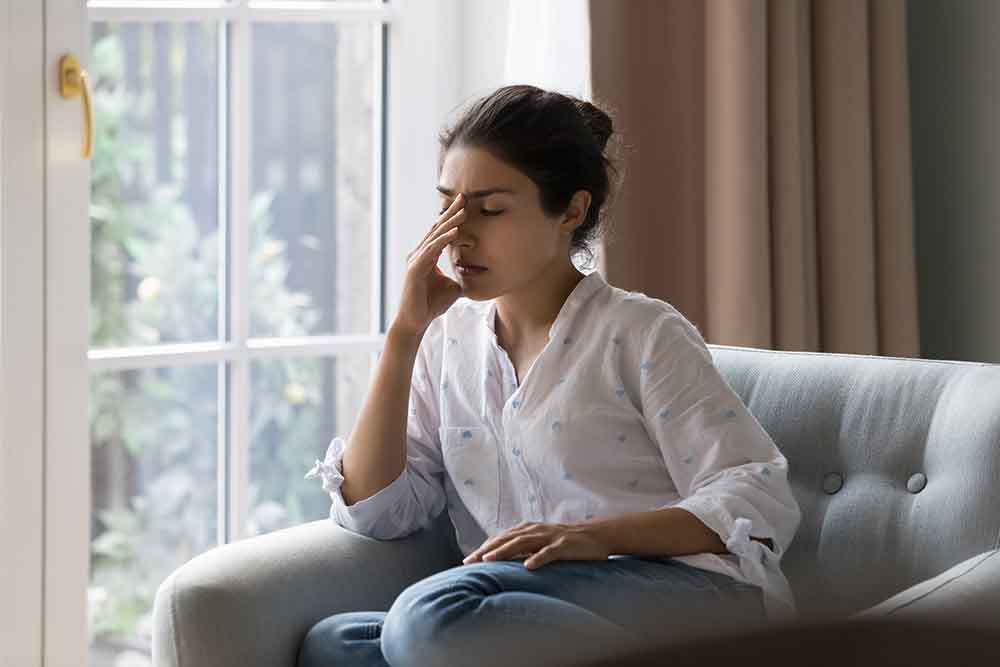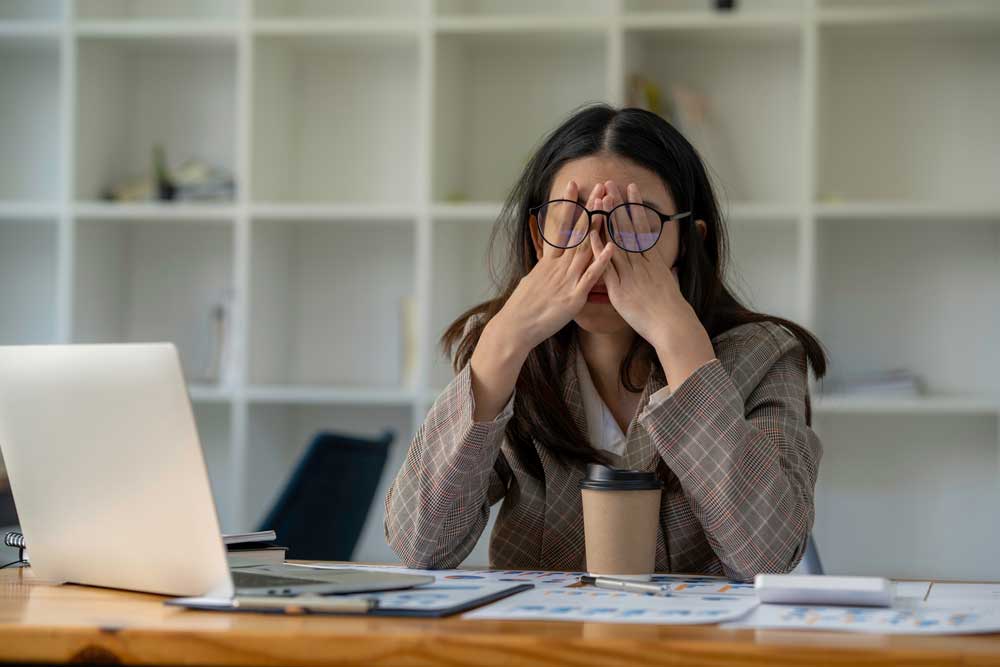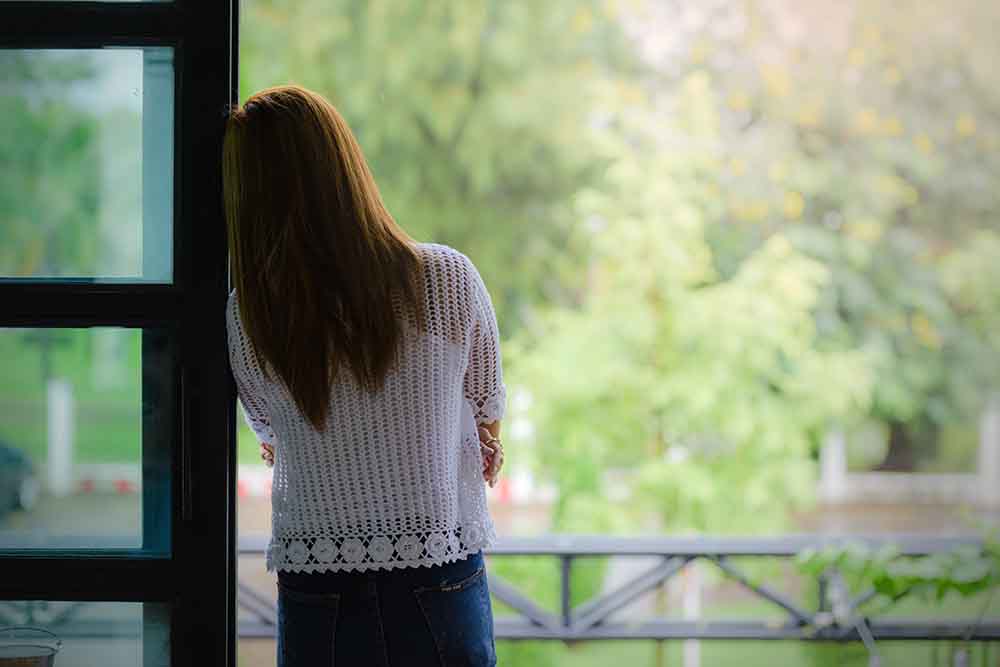Ever feel like no matter how much you rest, you just can’t seem to shake off that lingering tiredness? You're not alone. Whether it's during your morning coffee or a quick catch-up with a friend, ’I’m exhausted‘ has become the new ’hello’. But is this constant fatigue real, or have we collectively convinced ourselves that we're more tired than we actually are?

The Exhaustion Epidemic
Let’s be honest: everyone is exhausted, and it’s more than just a feeling. According to a survey by the American Psychological Association (APA), over 79 per cent of adults report feeling stressed at least once a week, and 32 per cent feel stressed daily. Janvi Rathore, a mental health expert at The Mood Space, points out, ’Currently, the pervasive experience of fatigue is apparent across various demographics, including homemakers, college students, and professionals.’ We’re not imagining it—life has become an endless race against time.
’I’m pursuing my Masters, and I don’t bring food to the table or engage in any hard labour. Yet every week, by mid-week, I feel overwhelmed and weirdly fatigued. Even my friends at college complain about the same thing,’ says Saarah Mondal.

Is It Just In Our Heads?
It’s easy to wonder if this constant tiredness is a result of talking about it too much. The more we discuss exhaustion, the more tired our heads get. Janvi adds, ’Societal expectations and personal aspirations further amplify this sense of fatigue. The tiredness is definitely in the head (literally) - along with physical fatigue, mental exhaustion has also been peaking,’ she adds.

’I feel like any amount of sleep is not enough, aches have pains have become an extension of life, energy levels are at an all time low. Even my favourite foods are unable to add the little joys to life,’ points Sonali Valecha.
Janvi highlights, ’The shift from remote work to hybrid models and now reporting from office blurs the lines between work and home life, making it hard to fully disconnect and recharge.’ We barely make time for ourselves, and some of us are simply engaged with work even after working hours. Even when we think we’re relaxing, we’re scrolling through social media or binge-watching TV shows, which don’t really give our brains the break they need. Then there’s the pressure of having to be available 24/7—emails, notifications, messages—it’s no wonder we’re always running on empty.

Why Does Exhaustion Feel Endless?
’I have lost count of the times I say, main thak gayi hoon in a day. I’ve been a homemaker for the last 30 years, but I’ve never felt as tired as I do now, especially post COVID-19. I don’t know what exactly happened in those two years, but I feel like I’ve aged 20 years. Post that, even the tiniest of chores feels like hard labour,’ says Tara Waghela.
Exhaustion doesn’t just come from lack of sleep or juggling too many tasks. It's a combination of modern lifestyle choices, societal pressures, and the constant hustle culture. Janvi points out that the exhaustion we’re experiencing isn’t just about today—it’s years in the making, ’The lasting effects of the COVID-19 pandemic have disrupted routines, creating ongoing uncertainty.’ The result? People are feeling more anxious, isolated, and financially strained.
For women, the pressure is even higher. Janvi observes, ’Today's women are juggling multiple roles—caregivers, professionals, and community members.’ With the added emotional labour of maintaining relationships, household responsibilities, and the pressure to succeed both at work and home, women are bearing the brunt of this exhaustion. As if that’s not enough, social media fuels unrealistic expectations, making women feel like they need to ’have it all'—a perfect career, a perfect body, and a perfect home.

Is There A Way Out?
Despite how widespread exhaustion has become, there are steps we can take to manage it. Mehta suggests creating clearer boundaries between work and personal time, especially in a world where those lines are constantly blurred. ’Establishing clear boundaries is key to disconnection and recharging,’ she says.
Taking time for self-care can make a world of difference too. Whether it’s a walk amidst nature, picking up on a hobby, or a short meditation, finding moments to breathe and recalibrate is essential. And while we can’t always control how much stress we face, we can learn to recognise when it’s time to seek help. ’If stress interferes with work, relationships, or self-care, it's time to reach out,’ Mehta advises. Listening to your body’s signals is crucial—chronic headaches, emotional shifts, or reliance on unhealthy coping mechanisms like alcohol are all red flags that professional support may be needed.
The Bottom Line
So, are we all genuinely exhausted, or is it in our heads? It’s a bit of both. Yes, our lives definitely more taxing and exhausting than ever before, but we’ve also created a culture where being tired is the default. We wear our exhaustion like a badge of honour, as if it’s proof that we’re working hard enough.
But maybe it’s time to flip the script. Instead of normalising exhaustion, let’s start normalising self-care, boundaries, and rest. Because at the end of the day, we’re not machines—we’re humans, and we deserve to feel less tired.